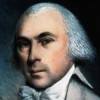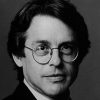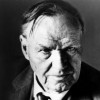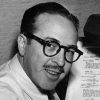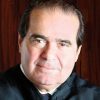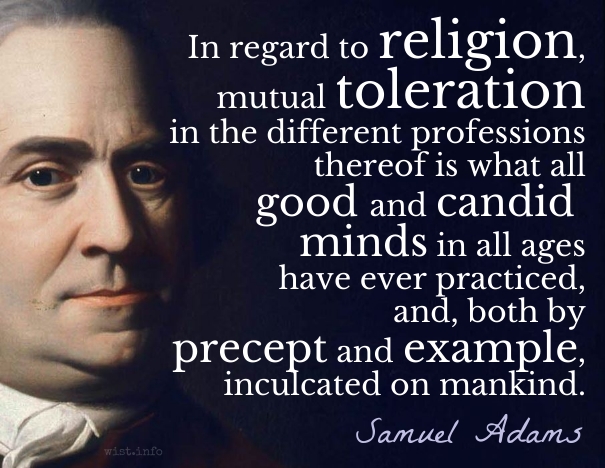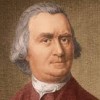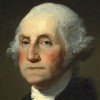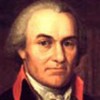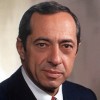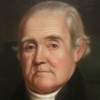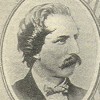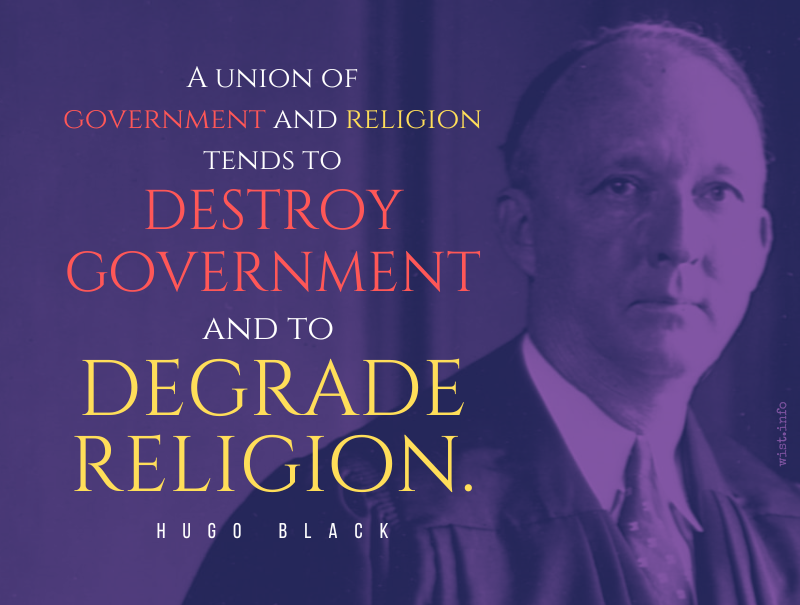In fact, even were it not inhuman to trouble another man’s conscience, even were there none of the bad effects that spring up by the thousands, one would have to be deranged to engage in such a purpose. He who tries to make me change my religion only does so, presumably, because he would never change his own, even were someone to try to force him to do so; so how can he find it strange that I should refuse to do something that he himself would not do, even perhaps were he offered the world as his empire?
[Car, enfin, quand il n’y auroit pas de l’inhumanité à affliger la conscience des autres, quand il n’en résulteroit aucun des mauvais effets qui en germent à milliers, il faudroit être fou pour s’en aviser. Celui qui veut me faire changer de religion ne le fait sans doute que parce qu’il ne changeroit pas la sienne, quand on voudroit l’y forcer : il trouve donc étrange que je ne fasse pas une chose qu’il ne feroit pas lui-même, peut-être pour l’empire du monde.]
Charles-Lewis de Secondat, Baron de Montesquieu (1689-1755) French political philosopher
Persian Letters [Lettres Persanes], Letter 86, Usbek to Mirza (1721) [tr. Mauldon (2008), # 83]
(Source)
(Source (French)). Alternate translations:
For, in short, though there was nothing of inhumanity in forcing the consciences of others; though it occasioned none of those ill effects which spring up from it by thousands; a man must be a fool to offer at it. He that would have me change my religion, does it, no doubt, because he would not change his own if he were to be forced to it: so that he wonders I will not do a thing, which perhaps he would not do himself for the empire of the universe.
[tr. Ozell (1760 ed.)]
For indeed, if there was nothing of inhumanity in forcing the conscience of another, though there did not arise from it any of those bad effects which spring from it by thousands, it would be folly to advise it. He who would have me change my religion, no doubt, desires me to do so, because he would not change his own if he were forced to do it: he yet thinks it strange, that I will not do a thing which he himself would not do, perhaps, for the empire of the world.
[tr. Floyd (1762), # 85]
In conclusion, even if there were no inhumanity in distressing the consciences of others, even if there did not result from such a course any of the evil effects which do spring from it in thousands, it would still be foolish to advise it. He who would have me change my religion is led to that, without doubt, because he would not change his own although force were employed; and yet he finds it strange that I will not do a thing which he himself would not do, perhaps for the empire of the world.
[tr. Davidson (1891)]
For, in fine, even if the attempt to trouble the conscience of our neighbor was not in itself inhuman, if the manifold evil effects which spring from it had no existence, the mere contemplation of such a course would be an evidence of mental unsoundness.
The man who would have me change my religion does so doubtless because he would never change his own, no matter what force was brought to bear upon him: yet he thinks it strange that I should refuse to do a thing he would not himself do for the empire of the whole world!
[tr. Betts (1897)]
Finally, even if it were not inhumane to afflict another’s conscience, and even if there did not result from such an act those bad effects which spring up by the thousands, it would still be foolish to advise it. Whoever would have me change my religion doubtlessly acts as he does because he would not change his, however he was forced; yet he finds it strange that I will not do something which he would not do himself, perhaps for the entire world.
[tr. Healy (1964), # 85]
Finally, even if it were inhumane to make such an assault on the consciences of others, with its thousands of self-replicating evil consequences, one would have to be mad to advise it. The man who wants me to change my religion does so only because he would never change his, no matter how much he was forced. And thus he thinks it strange that I will not do a thing he would not do for all the kingdoms of the world.
[tr. MacKenzie (2014), # 85]
Quotations about:
religious freedom
Note not all quotations have been tagged, so Search may find additional quotes on this topic.
The civil rights of none shall be abridged on account of religious belief or worship, nor shall any national religion be established, nor shall the full and equal rights of conscience be in any manner, or on any pretext, infringed.
The people shall not be deprived or abridged of their right to speak, to write, or to publish their sentiments; and the freedom of the press, as one of the great bulwarks of liberty, shall be inviolable.
The people shall not be restrained from peaceably assembling and consulting for their common good; nor from applying to the Legislature by petitions, or remonstrances, for redress of their grievances.
James Madison (1751-1836) American statesman, political theorist, US President (1809-17)
Speech Introducing Proposed Constitutional Amendments (1789-06-08)
(Source)
Speech before the House of Representatives, proposing a Bill of Rights amending the US Constitution. This was the first draft of the text that would go on to become the First Amendment.
Unfortunately, our own colonial history also provided ample reasons for people to be afraid to vest too much power in the national government. There had been bills of attainder here; women had been convicted and sentenced to death as “witches”; Quakers, Baptists, and various Protestant sects had been persecuted from time to time. Roger Williams left Massachusetts to breathe the free air of new Rhode Island. Catholics were barred from holding office in many places. Test oaths were required in some of the colonies to bar any but “Christians” from holding office. In New England Quakers suffered death for their faith. Baptists were sent to jail in Virginia for preaching, which caused Madison, while a very young man, to deplore what he called that “diabolical hell-conceived principle of persecution.”
Hugo Black (1886-1971) American politician and jurist, US Supreme Court Justice (1937-71)
James Madison Lecture, NYU School of Law (1960-02-17)
(Source)
The inaugural Madison lecture. Reprinted as "The Bill of Rights," NYU Law Review, Vol. 35 (Apr 1960). The Madison reference is in a letter to William Bradford (24 Jan 1774).
You may force men, by interest or punishment, to say or swear they believe, and to act as if they believed; you can go no farther.
Had the doctrines of Jesus been preached always as pure as they came from his lips, the whole civilized world would now have been Christian. I rejoice that in this blessed country of free inquiry and belief, which has surrendered its creed and conscience to neither kings nor priests, the genuine doctrine of one only God is reviving, and I trust that there is not a young man now living in the United States who will not die an Unitarian.
Thomas Jefferson (1743-1826) American political philosopher, polymath, statesman, US President (1801-09)
Letter to Benjamin Waterhouse (26 Jun 1822)
(Source)
The prayer of each man from his soul must be his and his alone. This is the genius of the First Amendment. If there is anything clear in the First Amendment, it is that the right of the people to pray in their own way is not be controlled by the election return.
Hugo Black (1886-1971) American politician and jurist, US Supreme Court Justice (1937-71)
Engel v. Vitale, 370 U.S. 421, 425 (1962) [extemporaneous remarks]
(Source)
Added by Black during his reading of the majority opinion, and not part of the written ruling. The passage follows, "It is no part of the business of government to compose official prayers for any group of the American people to recite as a part of a religious program carried on by government."
There can, of course, be no doubt that New York’s program of daily classroom invocation of God’s blessings as prescribed in the Regents’ prayer is a religious activity. […] We think that the constitutional prohibition against laws respecting an establishment of religion must at least mean that, in this country, it is no part of the business of government to compose official prayers for any group of the American people to recite as a part of a religious program carried on by government.
Hugo Black (1886-1971) American politician and jurist, US Supreme Court Justice (1937-71)
Engel v. Vitale, 370 U.S. 421, 424-425 (1962) [majority opinion]
(Source)
This case ruled that organized school prayer was unconstitutional. The prayer in question, to be recited by each class before their teacher each day, read: "Almighty God, we acknowledge our dependence upon Thee, and we beg Thy blessings upon us, our parents, our teachers and our Country."
It is true that many Americans find the Commandments in accord with their personal beliefs. But we do not count heads before enforcing the First Amendment.
Sandra Day O'Connor (b. 1930) American attorney, politician, Supreme Court justice (1981-2006)
McCreary County v. American Civil Liberties Union, 545 U.S. 844 (2005) [concurring]
(Source)
Declaring Ten Commandments displays in two Kentucky county courthouses to be unconstitutional.
Reasonable minds can disagree about how to apply the Religion Clauses in a given case. But the goal of the Clauses is clear: to carry out the Founders’ plan of preserving religious liberty to the fullest extent possible in a pluralistic society. By enforcing the Clauses, we have kept religion a matter for the individual conscience, not for the prosecutor or bureaucrat. At a time when we see around the world the violent consequences of the assumption of religious authority by government, Americans may count themselves fortunate: Our regard for constitutional boundaries has protected us from similar travails, while allowing private religious exercise to flourish. […] Those who would renegotiate the boundaries between church and state must therefore answer a difficult question: Why would we trade a system that has served us so well for one that has served others so poorly?
Sandra Day O'Connor (b. 1930) American attorney, politician, Supreme Court justice (1981-2006)
McCreary County v. American Civil Liberties Union, 545 U.S. 844 (2005) (concurring)
(Source)
No man shall be compelled to frequent or support any religious worship, place, or ministry whatsoever, nor shall be enforced, restrained, molested, or burthened in his body or goods, nor shall otherwise suffer, on account of his religious opinions or belief; but that all men shall be free to profess, and by argument to maintain, their opinions in matters of religion, and that the same shall in no wise diminish, enlarge, or affect their civil capacities.
Thomas Jefferson (1743-1826) American political philosopher, polymath, statesman, US President (1801-09)
“Virginia Statute for Religious Freedom” (18 Jun 1779; enacted 16 Jan 1786)
(Source)
Our secularism is hard-won, the product of centuries of political, intellectual, and sometimes physical courage. Secularism is the institutionalization of doubt, or more precisely of respect for doubt. It is harder to love doubt than to love freedom. So we are grudging about our secularism, and some of us are a little ashamed of it. Maybe it takes Rushdie’s nightmare and Khomeini’s rage to remind us how precious it is, and how fiercely it must be guarded.
Hendrik Hertzberg (b. 1943) American journalist, editor, speech writer, political commentator
“TRB from Washington,” The New Republic (20 Mar 1989)
(Source)
Where is it written that if you don’t like religion you are somehow disqualified from being a legitimate American? What was Mark Twain, a Russian?
Hendrik Hertzberg (b. 1943) American journalist, editor, speech writer, political commentator
“Antidisestablishmentarianism,” The New Republic (1985-09-16)
(Source)
Reprinted in Politics: Observations and Arguments, 1966-2004 (2005). Responding to a speech from William Bennett, Secretary of Education, about liberals having an "aversion to religion," thus requiring government promotion of "Judeo-Christian tradition."
Religious freedom should work two ways: we should be free to practice the religion of our choice, but we must also be free from having someone else’s religion practiced on us.
John Irving (b. 1942) American-Canadian novelist and screenwriter [b. John Wallace Blunt Jr.]
My Movie Business, ch. 8 (1999)
(Source)
If today you can take a thing like evolution and make it a crime to teach it in the public school, tomorrow you can make it a crime to teach it in the private schools, and the next year you can make it a crime to teach it to the hustings or in the church. At the next session you may ban books and the newspapers. Soon you may set Catholic against Protestant and Protestant against Protestant, and try to foist your own religion upon the minds of men. If you can do one you can do the other. Ignorance and fanaticism is ever busy and needs feeding. Always it is feeding and gloating for more. Today it is the public school teachers, tomorrow the private. The next day the preachers and the lectures, the magazines, the books, the newspapers. After a while, your honor, it is the setting of man against man and creed against creed until with flying banners and beating drums we are marching backward to the glorious ages of the sixteenth century when bigots lighted fagots to burn the men who dared to bring any intelligence and enlightenment and culture to the human mind.
Democracy means that people can say what they want to. All the people. It means that they can vote as they wish. All the people. It means that they can worship God in any way they feel right, and that includes Christians and Jews and voodoo doctors as well.
Dalton Trumbo (1905-1976) American screenwriter and novelist [James Dalton Trumbo]
The Remarkable Andrew (1942)
Based on Trumbo's 1941 book of the same name. Parallel text.
The government’s ability to enforce generally applicable prohibitions of socially harmful conduct, like its ability to carry out other aspects of public policy, “cannot depend on measuring the effects of a governmental action on a religious objector’s spiritual development.” To make an individual’s obligation to obey such a law contingent upon the law’s coincidence with his religious beliefs, except where the State’s interest is “compelling” — permitting him, by virtue of his beliefs, “to become a law unto himself” — contradicts both constitutional tradition and common sense.
Antonin Scalia (1936-2016) US Supreme Court justice
Employment Division v. Smith, 494 U.S. 872, majority opinion (1990)
(Source)
Opinion holding that the state could prohibit religious-based peyote use.
Religious discord has lost her sting; the cumbrous weapons of theological warfare are antiquated: the field of politics supplies the alchymists of our times with materials of more fatal explosion, and the butchers of mankind no longer travel to another world for instruments of cruelty and destruction. Our age is too enlightened to contend upon topics, which concern only the interests of eternity; and men who hold in proper contempt all controversies about trifles, except such as inflame their own passions, have made it a common-place censure against your ancestors, that their zeal was enkindled by subjects of trivial importance; and that however aggrieved by the intolerance of others, they were alike intolerant themselves. Against these objections, your candid judgment will not require an unqualified justification; but your respect and gratitude for the founders of the State may boldly claim an ample apology. The original grounds of their separation from the church of England, were not objects of a magnitude to dissolve the bonds of communion; much less those of charity, between Christian brethren of the same essential principles.
In regard to religion, mutual toleration in the different professions thereof is what all good and candid minds in all ages have ever practiced, and, both by precept and example, inculcated on mankind.
Samuel Adams (1722-1803) American revolutionary, statesman
“The Rights of the Colonists,” Report of the Committee of Correspondence to the Boston Town Meeting (1772-11-20)
(Source)
Whatever crushes individuality is despotism, by whatever name it may be called and whether it professes to be enforcing the will of God or the injunctions of men.
John Stuart Mill (1806-1873) English philosopher and economist
On Liberty, ch. 3 “Of Individuality, as One of the Elements of Well-Being” (1859)
(Source)
I also give it in charge to you to avoid all disrespect of the religion of the country, and its ceremonies. Prudence, policy, and a true Christian spirit, will lead us to look wit compassion up their errors without insulting them. While we are contending for our own liberty, we should be very cautious not to violate the rights of conscience in others, ever considering that God alone is the judge of the hearts of men, and to him only in this case are they answerable.
George Washington (1732-1799) American military leader, Founding Father, US President (1789-1797)
“Charge to the Northern Expeditionary Force,” letter to Benedict Arnold (14 Sep 1775)
(Source)
Regarding the invasion of (Catholic) Quebec, Canada.
Some very worthy persons, who have not had great advantages for information, have objected against that clause in the constitution which provides, that no religious test shall ever be required as a qualification to any office or public trust under the United States. They have been afraid that this clause is unfavorable to religion. But my countrymen, the sole purpose and effect of it is to exclude persecution, and to secure to you the important right of religious liberty. We are almost the only people in the world, who have a full enjoyment of this important right of human nature. In our country every man has a right to worship God in that way which is most agreeable to his conscience. If he be a good and peaceable person he is liable to no penalties or incapacities on account of his religious sentiments; or in other words, he is not subject to persecution. But in other parts of the world, it has been, and still is, far different. Systems of religious error have been adopted, in times of ignorance. It has been the interest of tyrannical kings, popes, and prelates, to maintain these errors. When the clouds of ignorance began to vanish, and the people grew more enlightened, there was no other way to keep them in error, but to prohibit their altering their religious opinions by severe persecuting laws. In this way persecution became general throughout Europe.
Oliver Ellsworth (1745-1807) American lawyer, politician, Founder, Supreme Court chief justice (1796-1800)
Essay (17 Dec 1787)
(Source)
We have solved, by fair experiment, the great and interesting question whether freedom of religion is compatible with order in government and obedience to the laws. And we have experienced the quiet as well as the comfort which results from leaving every one to profess freely and openly those principles of religion which are the inductions of his own reason and the serious convictions of his own inquiries.
Thomas Jefferson (1743-1826) American political philosopher, polymath, statesman, US President (1801-09)
Speech, Baptist General Meeting, Chesterfield, Virginia (21 Nov 1808)
(Source)
Ultimately, therefore, the question “whether or not we admit religious values into our public affairs” is too broad to yield a single answer. “Yes,” we create our public morality through consensus and in this country that consensus reflects to some extent religious values of a great majority of Americans. But “no,” all religiously based values don’t have an a priori place in our public morality. The community must decide if what is being proposed would be better left to private discretion than public policy; whether it restricts freedoms, and if so to what end, to whose benefit; whether it will produce a good or bad result; whether overall it will help the community or merely divide it.
Mario Cuomo (1932-2015) American politician
“Religious Belief and Public Morality,” John A. O’Brien Lecture, U. of Notre Dame (13 Sep 1984)
(Source)
We should begin by setting conscience free. When all men of all religions shall enjoy equal liberty, property, and an equal chance for honors and power we may expect that improvements will be made in the human character and the state of society.
The arguments start when religious values are used to support positions which would impose on other people restrictions they find unacceptable. Some people do object to Catholic demands for an end to abortion, seeing it as a violation of the separation of church and state. And some others, while they have no compunction about invoking the authority of the Catholic bishops in regard to birth control and abortion, might reject out of hand their teaching on war and peace and social policy.
Mario Cuomo (1932-2015) American politician
“Religious Belief and Public Morality,” John A. O’Brien Lecture, U. of Notre Dame (13 Sep 1984)
(Source)
The American states have gone far in assisting the progress of truth; but they have stopped short of perfection. They ought to have given every honest citizen an equal right to enjoy his religion and an equal title to all civil emoluments, without obliging him to tell his religion. Every interference of the civil power in regulating opinion, is an impious attempt to take the business of the Deity out of his own hands; and every preference given to any religious denomination, is so far slavery and bigotry.
Of all the animosities which have existed among mankind, those which are caused by a difference of sentiments in religion appear to be the most inveterate and distressing, and ought to be deprecated. I was in hopes that the enlightened and liberal policy, which has marked the present age, would at least have reconciled Christians of every denomination so far that we should never again see the religious disputes carried to such a pitch as to endanger the peace of society.
Our public morality, then — the moral standards we maintain for everyone, not just the ones we insist on in our private lives — depends on a consensus view of right and wrong. The values derived from religious belief will not — and should not — be accepted as part of the public morality unless they are shared by the pluralistic community at large, by consensus. That values happen to be religious values does not deny them acceptability as a part of this consensus. But it does not require their acceptability, either.
Mario Cuomo (1932-2015) American politician
“Religious Belief and Public Morality,” John A. O’Brien Lecture, U. of Notre Dame (13 Sep 1984)
(Source)
If I could conceive that the general government might ever be so administered as to render the liberty of conscience insecure, I beg you will be persuaded, that no one would be more zealous than myself to establish effectual barriers against the horrors of spiritual tyranny, and every species of religious persecution.
Persecution is not an original feature in any religion; but it is always the strongly marked feature of all religions established by law. Take away the law-establishment, and every religion re-assumes its original benignity.
The Catholic public official lives the political truth most Catholics through most of American history have accepted and insisted on: the truth that to assure our freedom we must allow others the same freedom, even if occasionally it produces conduct by them which we would hold to be sinful. I protect my right to be a Catholic by preserving your right to believe as a Jew, a Protestant or non-believer, or as anything else you choose.
Mario Cuomo (1932-2015) American politician
“Religious Belief and Public Morality,” John A. O’Brien Lecture, U. of Notre Dame (13 Sep 1984)
(Source)
In addition to all the weaknesses, dilemmas and temptations that impede every pilgrim’s progress, the Catholic who holds political office in a pluralistic democracy — who is elected to serve Jews and Muslims, atheists and Protestants, as well as Catholics — bears special responsibility. He or she undertakes to help create conditions under which all can live with a maximum of dignity and with a reasonable degree of freedom; where everyone who chooses may hold beliefs different from specifically Catholic ones — sometimes contradictory to them; where the laws protect people’s right to divorce, to use birth control and even to choose abortion. In fact, Catholic public officials take an oath to preserve the Constitution that guarantees this freedom. And they do so gladly. Not because they love what others do with their freedom, but because they realize that in guaranteeing freedom for all, they guarantee our right to be Catholics: our right to pray, to use the sacraments, to refuse birth control devices, to reject abortion, not to divorce and remarry if we believe it to be wrong.
Mario Cuomo (1932-2015) American politician
“Religious Belief and Public Morality,” John A. O’Brien Lecture, U. of Notre Dame (13 Sep 1984)
(Source)
All of us, no matter from what land our parents came, no matter in what way we may severally worship our Creator, must stand shoulder to shoulder in a united America for the elimination of race and religious prejudice. We must stand for a reign of equal justice to both big and small.
Theodore Roosevelt (1858-1919) American politician, statesman, conservationist, writer, US President (1901-1909)
“Americanism,” speech to the Knights of Columbus, New York (1915-10-12)
(Source)
I believe we are descendid from the Puritins, who nobly fled from a land of despitism to a land of freedim, where they could not only enjoy their own religion, but prevent everybody else from enjoyin his.
[I believe we are descended from the Puritans, who nobly fled from a land of despotism to a land of freedom, where they could not only enjoy their own religion, but prevent everybody else from enjoying his.]
It is not difficult to show, by abundant instances, that to extend the bounds of what may be called moral police, until it encroaches on the most unquestionably legitimate liberty of the individual, is one of the most universal of all human propensities.
John Stuart Mill (1806-1873) English philosopher and economist
On Liberty, ch. 4 “Of the Limits to the Authority of Society Over the Individual” (1859)
(Source)
We who hold public office are enjoined by our Constitution against enacting laws to tell the people when or where or how to pray.
All our experience and all our knowledge proves that injunction is good. for, if government could ordain the people’s prayers, government could also ordain its own worship — and that must never be.
The separation of church and state has served our freedom well because men of state have not separated themselves from church and faith and prayer.Lyndon B. Johnson (1908-1973) American politician, educator, US President (1963-69)
Speech, Presidential Prayer Breakfast (1964-02-05)
(Source)
This was at the 12th Annual Presidential Prayer Breakfast.
In the Proceedings of the Illinois State AFL-CIO Convention (1968), there is (a) a reference to a note that the state president of the AFL/CIO, Reuben G. Soderstrom, attending the 16th such Prayer Breakfast, and then (b) a passage on the next page "U. S. President Lyndon B. Johnson's statement to a tremendous audience contained the following comment:"
Our Constitution separates church and state. We know that separation is a source of our system's strength, but the conscience of our nation does not call for separation between men of state and faith in the Supreme Being.
Johnson does not appear to have included this text in his speech at the 16th Presidential Prayer Breakfast, nor does he appear to have gone to the 1968 Illinois AFL/CIO convention. Is this an odd paraphrase of the comments from four years earlier? Did Johnson speak the above in another venue that was also quoted in the Illinois AFL/CIO Convention proceedings? Is this paraphrase actually what he said in 1964, regardless of the written record of his comments?
While that shorter quote, or further paraphrases of it, are easy to find in quotation collections online, I can find no citation associated with it.
I am for freedom of religion, & against all maneuvres to bring about a legal ascendancy of one sect over another.
Thomas Jefferson (1743-1826) American political philosopher, polymath, statesman, US President (1801-09)
Letter to Elbridge Gerry (26 Jan 1799)
(Source)
The clergy, by getting themselves established by law, & ingrafted into the machine of government, have been a very formidable engine against the civil & religious rights of man.
Thomas Jefferson (1743-1826) American political philosopher, polymath, statesman, US President (1801-09)
Letter to Jeremiah Moor (18 Aug 1800)
(Source)
Another purpose of the Establishment Clause rested upon an awareness of the historical fact that governmentally established religions and religious persecutions go hand in hand. The Founders knew that only a few years after the Book of Common Prayer became the only accepted form of religious services in the established Church of England, an Act of Uniformity was passed to compel all Englishmen to attend those services and to make it a criminal offense to conduct or attend religious gatherings of any other kind — a law which was consistently flouted by dissenting religious groups in England and which contributed to widespread persecutions of people like John Bunyan who persisted in holding “unlawful [religious] meetings … to the great disturbance and distraction of the good subjects of this kingdom ….” And they knew that similar persecutions had received the sanction of law in several of the colonies in this country soon after the establishment of official religions in those colonies. It was in large part to get completely away from this sort of systematic religious persecution that the Founders brought into being our Nation, our Constitution, and our Bill of Rights with its prohibition against any governmental establishment of religion.
Hugo Black (1886-1971) American politician and jurist, US Supreme Court Justice (1937-71)
Engel v. Vitale, 370 U.S. 421, 424-425 (1962) [majority opinion]
(Source)
But the purposes underlying the Establishment Clause go much further than that. Its first and most immediate purpose rested on the belief that a union of government and religion tends to destroy government and to degrade religion. The history of governmentally established religion, both in England and in this country, showed that whenever government had allied itself with one particular form of religion, the inevitable result had been that it had incurred the hatred, disrespect and even contempt of those who held contrary beliefs. That same history showed that many people had lost their respect for any religion that had relied upon the support of government to spread its faith.
The Establishment Clause thus stands as an expression of principle on the part of the Founders of our Constitution that religion is too personal, too sacred, too holy, to permit its “unhallowed perversion” by a civil magistrate.
Hugo Black (1886-1971) American politician and jurist, US Supreme Court Justice (1937-71)
Engel v. Vitale, 370 U.S. 421, 431-432 (1962) [majority opinion]
(Source)
I never will, by any word or act, bow to the shrine of intolerance, or admit a right of enquiry into the religious opinions of others. on the contrary we are bound, you, I, & every one, to make common cause, even with error itself, to maintain the common right of freedom of conscience. we ought with one heart and one hand to hew down the daring and dangerous efforts of those who would seduce the public opinion to substitute itself into that tyranny over religious faith which the laws have so justly abdicated.
Thomas Jefferson (1743-1826) American political philosopher, polymath, statesman, US President (1801-09)
Letter to Edward Dowse (19 Apr 1803)
(Source)
From the dissensions among Sects themselves arise necessarily a right of choosing and necessity of deliberating to which we will conform. But if we choose for ourselves, we must allow others to choose also, and so reciprocally, this establishes religious liberty.
Thomas Jefferson (1743-1826) American political philosopher, polymath, statesman, US President (1801-09)
“Notes on Religion” (Oct 1776?)
(Source)
Labeled by Jefferson "Scraps Early in the Revolution." Modern rendering. Original:
From the dissensions among sects themselves arises necessarily a right of chusing & necessity of deliberating to which we will conform, but if we chuse for ourselves, we must allow others to chuse also, & to reciprocally. This establishes religious liberty.
Our Founders were no more willing to let the content of their prayers and their privilege of praying whenever they pleased be influenced by the ballot box than they were to let these vital matters of personal conscience depend upon the succession of monarchs. The First Amendment was added to the Constitution to stand as a guarantee that neither the power nor the prestige of the Federal Government would be used to control, support or influence the kinds of prayer the American people can say — that the people’s religions must not be subjected to the pressures of government for change each time a new political administration is elected to office. Under that Amendment’s prohibition against governmental establishment of religion, as reinforced by the provisions of the Fourteenth Amendment, government in this country, be it state or federal, is without power to prescribe by law any particular form of prayer which is to be used as an official prayer in carrying on any program of governmentally sponsored religious activity.
Hugo Black (1886-1971) American politician and jurist, US Supreme Court Justice (1937-71)
Engel v. Vitale, 370 U.S. 421, 429-30 (1962) [majority opinion]
(Source)
Another and more special provision has been made by one of the amendments to the Constitution, which expressly declares, that “Congress shall make no law respecting an establishment of religion, or prohibiting the free exercise thereof, or abridging the freedom of speech, or of the press,” thereby guarding, in the same sentence, and under the same words, the freedom of religion, of speech, and of the press, insomuch that whatever violated either throws down the sanctuary which covers the others, — and that libels, falsehood, and defamation, equally with heresy and false religion, are withheld from the cognizance of federal tribunals.
Thomas Jefferson (1743-1826) American political philosopher, polymath, statesman, US President (1801-09)
“Kentucky Resolutions,” Resolution 3 (1798)
(Source)
In protest of the Alien and Sedition Acts.
Christ’s religion needs no prop of any kind from any worldly source, and to the degree that it is thus supported is a millstone hanged about its neck.
George W. Truett (1867-1944) American minister, writer, and religious leader
Speech, steps of the US Capitol (1920)
Among the most inestimable of our blessings also is that you so justly particularise, of liberty to worship our creator in the way we think most agreeable to his will; a liberty deemed in other countries incompatible with good government, & yet proved by our experience to be it’s best support.
Thomas Jefferson (1743-1826) American political philosopher, polymath, statesman, US President (1801-09)
Letter to John Thomas (18 Nov 1807)
(Source)
The constitutional freedom of religion [is] the most inalienable and sacred of all human rights.
Thomas Jefferson (1743-1826) American political philosopher, polymath, statesman, US President (1801-09)
Virginia Board of Visitors Minutes (1819)
(Source)
That [First] Amendment requires the state to be a neutral in its relations with groups of religious believers and nonbelievers; it does not require the state to be their adversary. State power is no more to be used so as to handicap religions than it is to favor them.
Hugo Black (1886-1971) American politician and jurist, US Supreme Court Justice (1937-71)
Everson v. Board of Education, 330 U.S. 1, 18 (1947) [majority opinion]
(Source)
That therefore the proscribing any citizen as unworthy the public confidence by laying upon him an incapacity of being called to offices of trust and emolument, unless he profess or renounce this or that religious opinion, is depriving him injuriously of those privileges and advantages to which, in common with his fellow citizens, he has a natural right;
That it tends also to corrupt the principles of that very religion it is meant to encourage, by bribing, with a monopoly of worldly honours and emoluments, those who will externally profess and conform to it;
That though indeed these are criminal who do not withstand such temptation, yet neither are those innocent who lay the bait in their way.
Thomas Jefferson (1743-1826) American political philosopher, polymath, statesman, US President (1801-09)
“Virginia Statute for Religious Freedom” (18 Jun 1779; enacted 16 Jan 1786)
(Source)
Our civil rights have no dependence on our religious opinions any more than our opinions in physics or geometry.
Thomas Jefferson (1743-1826) American political philosopher, polymath, statesman, US President (1801-09)
“Virginia Statute for Religious Freedom” (18 Jun 1779; enacted 16 Jan 1786)
(Source)
Well aware that the opinions and belief of men depend not on their own will, but follow involuntarily the evidence proposed to their minds; that Almighty God hath created the mind free, and manifested his supreme will that free it shall remain by making it altogether insusceptible of restraint; that all attempts to influence it by temporal punishments, or burthens, or by civil incapacitations, tend only to beget habits of hypocrisy and meanness, and are a departure from the plan of the holy author of our religion, who being lord both of body and mind, yet chose not to propagate it by coercions on either, as was in his Almighty power to do, but to extend it by its influence on reason alone; that the impious presumption of legislators and rulers, civil as well as ecclesiastical, who, being themselves but fallible and uninspired men, have assumed dominion over the faith of others, setting up their own opinions and modes of thinking as the only true and infallible, and as such endeavoring to impose them on others, hath established and maintained false religions over the greatest part of the world and through all time ….
Thomas Jefferson (1743-1826) American political philosopher, polymath, statesman, US President (1801-09)
“Virginia Statute for Religious Freedom,” Preamble (18 Jun 1779; enacted 16 Jan 1786)
(Source)
During final debate around the bill's passage:See Jefferson's discussion about a failed amendment to the preamble here.
- the first clause was struck, changing the beginning to "Whereas Almighty God ...."
- the phrase "and manifested his supreme will that free it shall remain by making it altogether insusceptible of restraint" was struck.
- the phrase "but to extend it by its influence on reason alone" was struck.
The “establishment of religion” clause of the First Amendment means at least this: Neither a state nor the Federal Government can set up a church. Neither can pass laws which aid one religion, aid all religions, or prefer one religion over another. Neither can force nor influence a person to go to or to remain away from church against his will or force him to profess a belief or disbelief in any religion. No person can be punished for entertaining or professing religious beliefs or disbeliefs, for church attendance or non-attendance. No tax in any amount, large or small, can be levied to support any religious activities or institutions, whatever they may be called, or whatever form they may adopt to teach or practice religion. Neither a state nor the Federal Government can, openly or secretly, participate in the affairs of any religious organizations or groups and vice versa. In the words of Jefferson, the clause against establishment of religion by law was intended to erect “a wall of separation between Church and State.”
The bill for establishing religious freedom, the principles of which had, to a certain degree, been enacted before, I had drawn in all the latitude of reason and right. It still met with opposition; but, with some mutilations in the preamble, it was finally passed; and a singular proposition proved that its protection of opinion was meant to be universal.
Where the preamble declares, that coercion is a departure from the plan of the holy author of our religion, an amendment was proposed by inserting “Jesus Christ,” so that it would read “A departure from the plan of Jesus Christ, the holy author of our religion;” the insertion was rejected by the great majority, in proof that they meant to comprehend, within the mantle of its protection, the Jew and the Gentile, the Christian and Mohammedan, the Hindoo, and Infidel of every denomination.
We have solved, by fair experiment, the great & interesting question Whether freedom of religion is compatible with order in government and obedience to the laws; & we have experienced the quiet as well as the comfort which results from leaving every one to profess freely & openly those principles of religion which are the inductions of his own reason, & the serious convictions of his own enquiries.
Thomas Jefferson (1743-1826) American political philosopher, polymath, statesman, US President (1801-09)
Letter to Va. Baptist Associations of Chesterfield (21 Nov 1808)
(Source)


